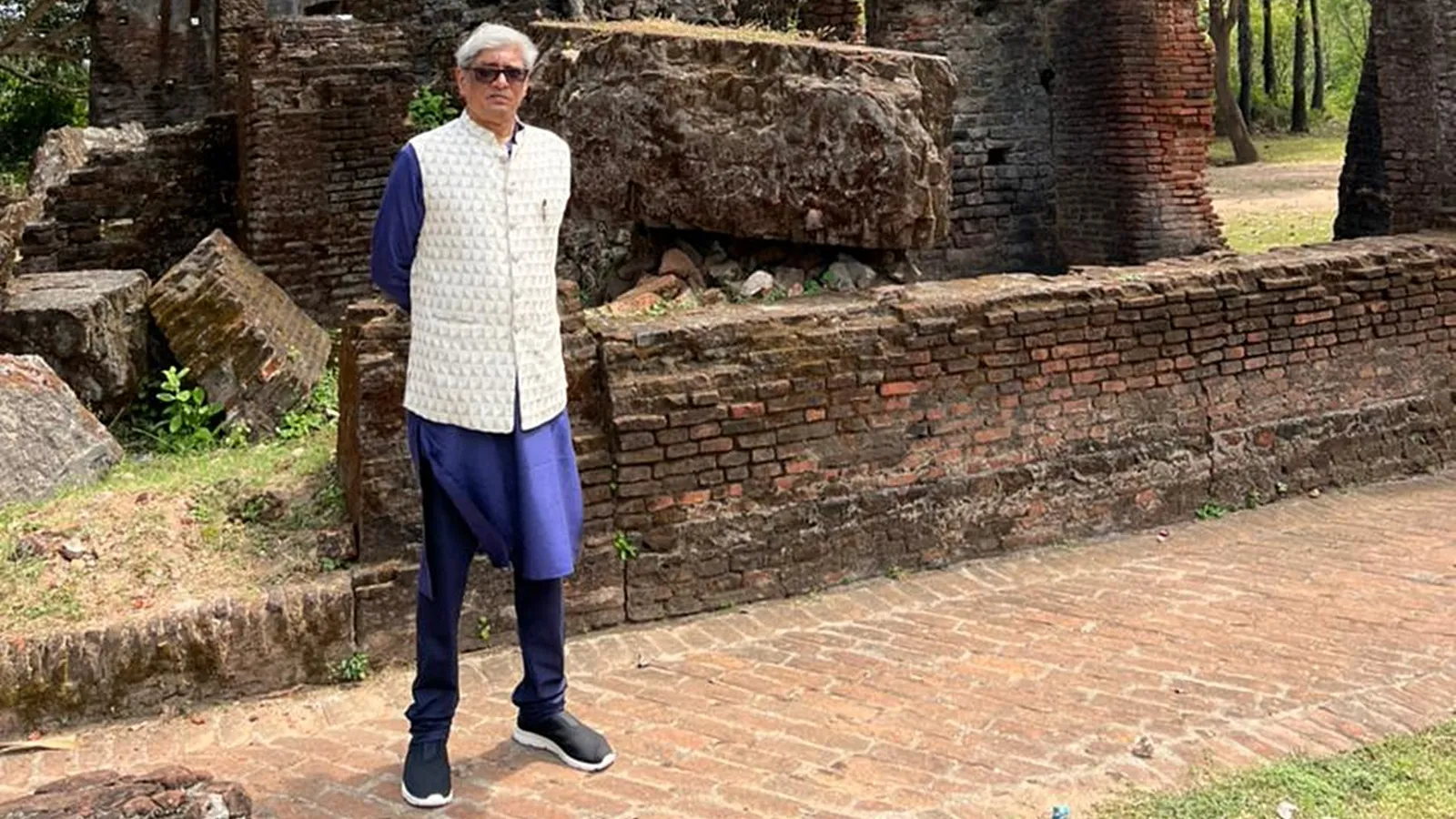
Bibek Debroy’s Poignant Farewell: Reflecting on Life’s Transience
In a haunting twist, economist and scholar Bibek Debroy penned his own obituary just four days before he passed away. Debroy’s reflections reveal a deeply introspective look at life and mortality. His words linger on a theme that is both relatable and profound: "There is a world outside that exists. What if I am not there? What indeed?" This line captures the essence of Debroy’s perspective on his own impermanence, inviting readers to consider what traces we all leave behind.
On October 28, in a column Debroy submitted to The Indian Express , he wrote what he called an “unusual column,” describing it as “short of a requiem.” He had recently been discharged from a month-long stay in the cardiac care unit at AIIMS. During this period, his wife, Suparna, stood by his side, tirelessly caring for him. Despite his frail state, he continued working from his hospital bed, dictating columns and poems, even if many didn’t notice his absence. His view was confined to a small hospital window, where he observed a monkey climbing a pipe each morning. It became a symbol of the external world he could barely touch, a distant reminder of life outside his medical confines.
Also Read:- Excitement Builds for LoL Worlds 2024 Finals: T1 vs. Bilibili Gaming
- Boise State vs. SDSU: Five Key Factors in the Aztecs’ Challenge Against No. 15 Broncos
Debroy also pondered the legacy he would leave behind. He speculated that some might remember his contributions to public policy, his work with trade and legal reforms, or his writings on ancient Indian texts. However, he doubted that these accomplishments were truly “seminal,” noting that he might be “temporarily read and passed into oblivion.” Such humility from a man of his stature—the Chairman of the Prime Minister's Economic Advisory Council and a prolific author—speaks volumes about his introspective nature.
In his reflections, Debroy questioned the impact of his life on those closest to him. He wondered if his passing would touch those he had influenced, helped, or even hurt. He noted that many whom he had touched might feel a private, personal loss, but that, as he saw it, his departure would not represent a “social loss.” He reflected on the limited connection he had with his children, who had settled abroad, and mused that they might return to India for his funeral but wouldn’t be there for a final hug. His words capture a bittersweet view on relationships, one marked by distance yet colored by love and understanding.
Beyond his professional life, Debroy grappled with the complexities of detachment and the struggle to reconcile mind and body. He recounted his readings of the Ashtavakra Gita and mused over Yayati’s mythological struggle for physical vitality. His longing for a fleeting moment of disembodied peace—like the sensation he once experienced under local anesthesia—reflects his own journey toward accepting life’s impermanence.
As news of his passing spread, condolences poured in, including tributes from Prime Minister Narendra Modi and other notable figures. Modi described Debroy as a “towering scholar” and praised his contributions across disciplines, from economics to spiritual literature. Bibek Debroy’s legacy—rich, varied, and reflective—will indeed endure, immortalized in his own words and the lives he touched.
Read More:


0 Comments